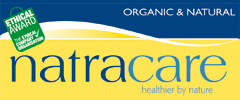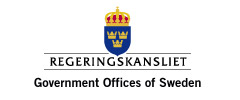Changing our Food patterns is the solution for humanity
Food facts on World Environment Day, 5 June 2013
05.06.2013 | WECF News Release
According to the UN Food and Agriculture Organization (FAO), every year 1.3 billion tonnes of food is wasted. This is equivalent to the same amount produced in the whole of sub-Saharan Africa. At the same time, 1 in every 7 people in the world go to bed hungry and more than 20,000 children under the age of 5 die daily from hunger.
Anne Barre, Chair of the NGO “Women in Europe for a Common Future” (WECF) in France, comments: the globalization of food production is pushing small women farmers off their lands, as large commercial producers “grab” the best land, at the same time, the global food chain is devastating for our planet, as UNEP calculated, the global food production is responsible for 70% of fresh water (over-)consumption, 80% of deforestation, and 30% of greenhouse gas emissions and is the largest single driver of biodiversity loss and land-use change.
Sascha Gabizon, Director of “Women International for a Common Future” (WICF) who is currently at the Climate negotiations in Bonn, states “on World Environment Day it is essential to understand that our current agricultural model has failed, and that it is the area with the greatest CO2 reduction potential. Till 2020, changing to sustainable agriculture can reduce emission with up to 4,5 gigatons. The EU should stop subsidising its wasteful, unhealthy and climate-damaging agriculture which still takes more than 40% of the total European budget! It is also very inequitable, 80% of the agricultural subsidies go to only 20% of the larger and most CO2 intensive farmers”.
Anne Barre comments “in our projects promoting regional farming programmes we show the alternatives ; locally produced quality food which brings jobs for people, not just profits for the pesticide and fertilizer multinationals. we also develop natural fertilizer from urine – but with subsidized synthetic fertilizer that can not become a marketable product”
Margriet Samwel, senior specialist water and food safety at WECF: We need to understand that the current industrial farming model causes great health and other external costs. Cancer levels are very high among farmers. WECF analysed the Dutch governments pesticide residue data, and found that 90% of apples bought in supermarket contain pesticides residues, which even in very low doses, can initiate cancer or disrupt the hormone system . These so-called endocrine disrupting chemicals are a possible cause of diabetes, obesitas, cancer and infertility. That the residues are a health risk, even in very small doses, is illustrated by the fact that we found that 500 grams of salad can have the same amount of hormone active substances from pesticides, as in the anti-conception pill.
A stop of food wastage from the field to the fork, changing food patterns in western countries will be a key constraint to global food and water security and mitigation of climate change
MAKE THIS HAPPEN, JOIN US! OR SUPPORT US BY MAKING AN ONLINE DONATION, EVERY LITTLE THING COUNTS.

Contact for further information
Chantal Van den Bossche, WECF press: chantal.vandenbossche@wecf.eu;
mob: 0031-6.2812 9992
Related News
GoodFood4All
WECF and partners all over Europe start GoodFood4All Campaign
06.11.2018
Promotion of Healthy and Economical Agriculture and Livestock Farming
How to improve with simple means agricultural cultivation methods and local livestock farming and make them more profitable
08.08.2018
Armenia Policy Dialogue on Agenda2030 - Women2030 Program, Yerevan, 18 June 2018
WECF and Armenian partners invited 30 Civil Society Organisations and Government representatives to prepare input for Agenda2030 UN top in July
02.07.2018
Greenpeace EU Director pushes for "Friends of the Bees" behaviour at the European Commission
Discussions to ban Neonicotinoids (insecticides) have been going on for a year at the European Commission, considering the threat they pose to bees and other major pollinators. Yet, the vote on the proposal keeps on getting delayed.
20.03.2018
Successful first action against algae overgrowth in the Blue Lake in Ukraine
Using fish to fight the overgrowth of algae
18.12.2017







































